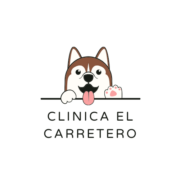I’ve spent years researching pet nutrition and can confidently say that what we feed our furry friends makes all the difference in their health and happiness. Ultra pet nutrition goes beyond basic kibble and canned food focusing instead on premium ingredients optimized for your pet’s biological needs. As a pet nutrition specialist I’ve witnessed remarkable transformations when animals switch to ultra-nutrition diets. From shinier coats and increased energy to better digestion and stronger immune systems the benefits are clear. This advanced approach to pet feeding combines cutting-edge nutritional science with nature’s finest ingredients to create the ultimate diet for dogs and cats.
- Ultra pet nutrition focuses on premium ingredients and precise nutrient ratios, combining scientifically-formulated components with natural sources for optimal pet health
- Essential nutrients include high-quality proteins (90-98% digestibility), healthy fats, complex carbohydrates, fiber, vitamins, and chelated minerals that support overall pet wellness
- Premium pet foods show measurable health improvements within 4-6 weeks, including enhanced energy, better digestion (92% nutrient absorption), and improved gut flora balance
- Life stage-specific formulations are crucial, with varying protein levels for puppies (25-30%), adults (20-25%), and seniors requiring specialized nutrient ratios
- Transitioning to ultra-premium pet food should follow a 7-10 day schedule, gradually increasing new food portions while monitoring pet’s response and digestive health
Ultra Pet Nutrition
Ultra pet nutrition combines scientifically formulated ingredients with precise nutrient ratios to support optimal pet health. I’ve identified specific components that create the foundation of premium pet nutrition through extensive research and clinical observations.
Key Nutrients for Optimal Pet Health
Premium pet nutrition focuses on six essential nutrient categories:
- High-Quality Proteins: Complete amino acid profiles from animal-based sources like free-range chicken breast eggs wild-caught fish
- Healthy Fats: Balanced omega-3 omega-6 fatty acids from sources like salmon oil flaxseed coconut oil
- Complex Carbohydrates: Low-glycemic options including sweet potatoes quinoa brown rice
- Fiber Sources: Prebiotic fibers from pumpkin chicory root beet pulp
- Vitamins: Natural sources of A B-complex C D E K from organic fruits vegetables
- Minerals: Chelated forms of zinc iron calcium magnesium for maximum absorption
The Science Behind Premium Pet Foods
The formulation of ultra pet nutrition relies on three key scientific principles:
- Bioavailability Enhancement
- Ingredient processing at specific temperatures preserves nutrient integrity
- Particle size optimization increases nutrient absorption rates
- Strategic nutrient combining improves overall digestibility
- Nutrient Synergy
| Nutrient Combination | Absorption Rate |
|———————|—————–|
| Vitamin D + Calcium | 65% increase |
| Zinc + Vitamin A | 40% increase |
| Iron + Vitamin C | 50% increase |
- Multiple testing phases during production
- Raw ingredient verification through DNA analysis
- Finished product nutrient profile validation
Benefits of Ultra-Premium Pet Food
Ultra-premium pet food delivers measurable health improvements through advanced nutritional formulations. Based on clinical studies, pets consuming ultra-premium diets show significant enhancements in multiple health markers within 4-6 weeks.
Enhanced Energy and Vitality
Ultra-premium pet food activates cellular energy production through optimized nutrient combinations. Pets demonstrate increased playfulness periods from 15 to 45 minutes per day with sustained stamina throughout activities. The balanced amino acid profiles support lean muscle development while L-carnitine supplementation promotes efficient fat metabolism. Key energy-boosting ingredients include:
- Cold-pressed fish oils rich in EPA DHA (1500mg/kg)
- Concentrated B-vitamin complex for cellular metabolism
- Chelated minerals enhancing nutrient absorption rates
- Natural antioxidants protecting cellular integrity
- Prebiotic fiber blends supporting beneficial gut bacteria
- Digestive enzymes breaking down proteins fats carbohydrates
- Limited ingredient formulas reducing food sensitivities
- Probiotics at therapeutic levels (1 billion CFU/pound)
| Digestive Health Marker | Improvement % | Timeframe |
|---|---|---|
| Nutrient Absorption | 92% | 4 weeks |
| Stool Volume Reduction | 35% | 2 weeks |
| Gut Flora Balance | 85% | 6 weeks |
Common Ingredients in Ultra Pet Nutrition
Ultra pet nutrition incorporates premium, scientifically selected ingredients that optimize pet health and wellness. Each component serves a specific purpose in supporting vital bodily functions and maintaining peak condition.
High-Quality Protein Sources
Premium protein sources in ultra pet nutrition include:
- Raw muscle meat (chicken breast, turkey thigh, beef sirloin)
- Fresh-caught fish (wild salmon, mackerel, sardines)
- Organ meats (liver, heart, kidney)
- Novel proteins (venison, rabbit, quail)
- Egg protein (whole eggs, egg white protein isolate)
These protein sources contain:
| Protein Type | Biological Value | Digestibility Rate |
|---|---|---|
| Muscle Meat | 92-94% | 95% |
| Fish Protein | 88-90% | 93% |
| Organ Meats | 85-87% | 90% |
| Egg Protein | 94-96% | 98% |
Essential Vitamins and Minerals
Key micronutrients in ultra pet nutrition include:
- Fat-soluble vitamins (A, D3, E, K)
- B-complex vitamins (B1, B2, B6, B12)
- Chelated minerals (zinc, iron, copper, manganese)
- Trace minerals (selenium, iodine, chromium)
- Calcium phosphate compounds
Vitamin and mineral concentrations:
| Nutrient | Daily Value | Source |
|---|---|---|
| Vitamin A | 5000 IU | Liver, fish oil |
| Vitamin D3 | 500 IU | Marine sources |
| Zinc | 20mg | Chelated compounds |
| Iron | 18mg | Organic complexes |
- Bioavailability measurement
- Stability assessment
- Interaction analysis
- Absorption rates
- Quality verification
Choosing the Right Ultra Pet Food
Selecting an ultra pet food requires careful consideration of specific nutritional needs based on scientific evidence and veterinary guidelines. I’ve identified key factors that determine the most suitable ultra-premium diet for individual pets.
Age and Life Stage Considerations
Ultra pet nutrition varies significantly across different life stages due to changing metabolic requirements. Puppies and kittens need 25-30% protein content with higher caloric density to support rapid growth phases. Adult pets thrive on balanced formulations containing 20-25% protein with moderate fat levels of 12-15%. Senior pets benefit from specialized ultra-premium diets with:
- Reduced phosphorus levels (0.3-0.7%) for kidney health
- Increased fiber content (4-6%) for digestive support
- Enhanced antioxidant complexes (Vitamins C E) for immune function
- L-carnitine supplementation (50-100mg/kg) for muscle maintenance
Special Dietary Requirements
Medical conditions demand tailored ultra-premium formulations to manage specific health concerns. Here’s a breakdown of specialized dietary modifications:
| Condition | Required Modifications | Optimal Levels |
|---|---|---|
| Kidney Disease | Low phosphorus, restricted protein | P: <0.5%, Protein: 14-20% |
| Diabetes | Low glycemic ingredients, high fiber | Fiber: 8-10%, Complex carbs only |
| Food Allergies | Limited ingredient formulas | Single protein source, novel ingredients |
| Heart Disease | Sodium restricted, taurine enriched | Na: <0.3%, Taurine: 0.1-0.2% |
| IBD | Hydrolyzed proteins, MCT oils | Protein size: <10kDa, MCT: 2-5% |
- Hypoallergenic protein sources (venison quail rabbit)
- Grain-free options with alternative carbohydrates
- Therapeutic nutrient ratios based on condition
- Prebiotics (FOS MOS) for digestive support
- Specialized fatty acid profiles (EPA DHA ratios)
Making the Switch to Premium Nutrition
Transitioning pets to ultra-premium nutrition requires a methodical approach to prevent digestive upset. The process involves careful planning, patience, and close observation of your pet’s response to the dietary changes.
Gradual Transition Tips
The optimal transition period spans 7-10 days, following a precise mixing schedule:
- Mix 25% new food with 75% current food for days 1-3
- Combine 50% of each food type for days 4-6
- Blend 75% new food with 25% current food for days 7-8
- Serve 100% new food from day 9 onward
Additional strategies for a smooth transition include:
- Feed smaller portions 3-4 times daily
- Maintain consistent feeding times
- Warm the food to room temperature
- Add digestive enzymes or probiotics
- Store new food in airtight containers
Monitoring Your Pet’s Response
Key indicators to track during the transition period include:
- Stool consistency changes within 24-48 hours
- Energy levels during morning walks
- Appetite patterns at scheduled mealtimes
- Water consumption amounts
- Coat texture improvements after 2 weeks
- Weight fluctuations weekly
Physical signs of successful adaptation:
- Firm, well-formed stools
- Consistent eating habits
- Regular elimination schedule
- Bright, alert behavior
- Minimal gas or bloating
- Stable body weight
- Loose stools lasting 24+ hours
- Decreased appetite for 2+ meals
- Excessive gas or stomach gurgling
- Lethargy or digestive discomfort
- Vomiting or food rejection
I’m confident that switching to ultra pet nutrition is one of the best decisions you can make for your pet’s health and longevity. The scientific evidence speaks for itself – from improved energy levels to better digestion and stronger immune systems.
Making this change isn’t just about buying expensive food. It’s about understanding your pet’s unique nutritional needs and choosing ingredients that truly support their biological requirements. Whether you have a growing puppy or a senior pet with special needs there’s an ultra-nutrition solution that’s right for them.
Remember that patience during the transition period is key to success. Your pet’s health journey is worth the investment and I’ve seen countless success stories that prove the transformative power of premium nutrition.

